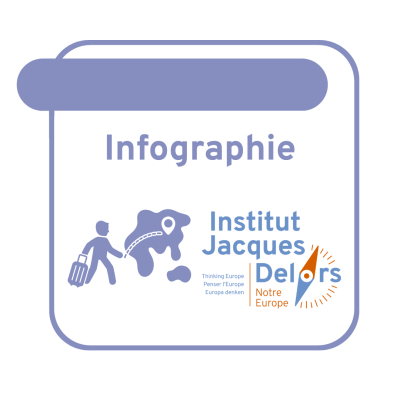L’UE dans la course mondiale aux migrants hautement qualifiés
European efforts to attract highly-qualified immigration face several obstacles, from the non-existence of a true intra-European labour market to the difficulties resulting from the overly timid design of the Blue Card. It is still impossible to evaluate the Blue Card’s effect but the changes that have taken place in the European migratory framework since its approval in 2009 should now allow the re-drafting of the Directive to offer a more attractive channel to qualified immigrants. During the past few years, several European countries have adopted new initiatives to attract this immigrant-type, bringing about a set of experiences over which a new common and more ambitious framework can be built. In this context, the paper presents several proposals such as enhanced cooperation amongst sub-sets of member states with similar salary structures, the opening of the academic admissions gate, or measures to enhance intra-European labour mobility of both EU citizens and third-country nationals.

Disponible en anglais uniquement
Ce Policy Paper est une contribution de Andreas Ette (for SWP), Roderick Parkes (SWP-PISM), Alicia Sorroza et Carmen Gonzales Enriquez (Elcano) au projet Think Global – Act European (TGAE). Thinking Strategically about the EU’s external action dirigé par Notre Europe – Institut Jacques Delors (rapport disponible en mars 2013, dir. Elvire Fabry, Chercheur Senior, Notre Europe – Institut Jacques Delors).
European efforts to attract highly-qualified immigration face several obstacles, from the non-existence of a true intra-European labour market to the difficulties resulting from the overly timid design of the Blue Card. It is still impossible to evaluate the Blue Card’s effect but the changes that have taken place in the European migratory framework since its approval in 2009 should now allow the re-drafting of the Directive to offer a more attractive channel to qualified immigrants. During the past few years, several European countries have adopted new initiatives to attract this immigrant-type, bringing about a set of experiences over which a new common and more ambitious framework can be built. In this context, the paper presents several proposals such as enhanced cooperation amongst sub-sets of member states with similar salary structures, the opening of the academic admissions gate, or measures to enhance intra-European labour mobility of both EU citizens and third-country nationals.
Ce Policy Paper fait partie de la série intitulée «La politique migratoire de l’UE : quelle stratégie pour relever le défi démographique ?» qui comprend les contributions de Ruby Gropas (Eliamep),Hans Martens (EPC), Sergio Carrera, Leonard Den Hertog and Joanna Parkin (CEPS), Thanos Maroukis et Anna Triandafylliou (Eliamep).




